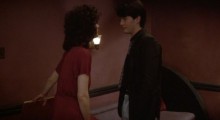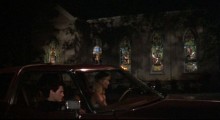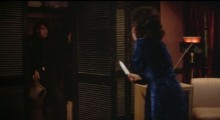Roberto Bolaño
-
Hope, Soderbergh, Bowie, Hannah, Bolano and Glass (Google and Ira): Sunday Morning Links

The San Francisco International Film Festival is underway, the first under the San Francisco Film Society’s new head, Ted Hope. In an interview with Casey Burchby at the San Francisco Weekly, Hope tells the story of his move from producing in New York to running the organization in the Bay Area and how it reflects his own evolving ideas on independent media in the 21st century. I especially like this quote about how artists can rethink their process in a time of plenty. Emphasis added below: Burchby: I wanted to connect your vision for the SF Film Society to the […]
by Scott Macaulay on Apr 28, 2013 -
The Blue Velvet Project, #90

Second #4230, 70:30 In Roberto Bolaño’s short story “Days of 1978” (from the collection Last Evenings on Earth) one of the characters, upon hearing the voice of another character, suddenly and frightfully develops an unsettling and inexplicable image in his mind: It [the voice] conjures up a silent black-and-white film in which, all of a sudden, the characters start shouting incomprehensibly at the top of their voices, while a red line appears in the middle of the screen and begins to widen and spread. What to make of this? It’s nightmarish, but why? Perhaps it’s because what’s described is difficult […]
by Nicholas Rombes on Mar 14, 2012 -
The Blue Velvet Project, #69

Second #3243, 54:03 “It’s a strange world, Sandy.” *** “Frank is a . . . a very dangerous man.” *** “You saw a lot in one night.” *** “It is a strange world.” These lines from around the moment of this frame collapse into one meaning, one meaning obvious to Sandy: that Jeffrey has fallen in love with Dorothy. Outside the church, Sandy is about to deliver her “robins” monologue, a monologue that securely nails Blue Velvet to the wall of sincerity. The shot itself is full of menace and beauty: the night, the soft illumination of the car’s interior, […]
by Nicholas Rombes on Jan 20, 2012 -
The Blue Velvet Project, #49

Second #2303, 38:23 In Roberto Bolaño newly published story “The Colonel’s Son,” the narrator describes a zombie movie he’s recently seen on TV. In fact, the entire story is a sordid summary of the movie, introduced like this: I swear it was the most democratic, the most revolutionary film I’d seen in ages, and I don’t say that because the film in itself revolutionized anything; not at all, it was pathetic really, full of clichés and tired devices, yet every frame was infused with and gave off a revolutionary atmosphere . . . At the moment of this frame, second […]
by Nicholas Rombes on Dec 2, 2011




